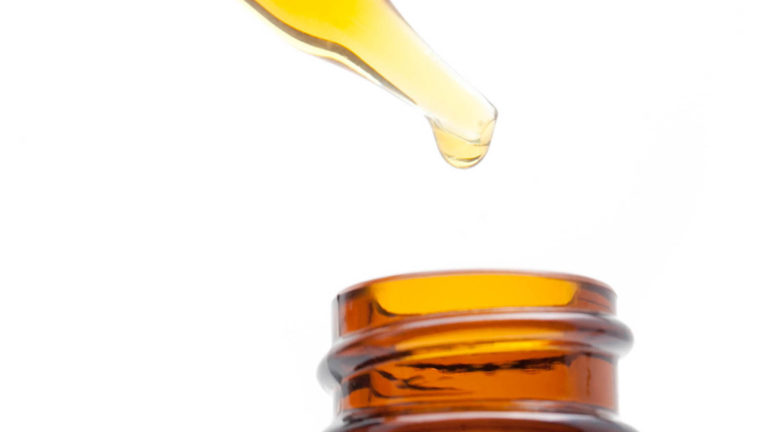Yes, cannabidiol (CBD) oil is legal. In many ways, CBD laws in Maryland predate many of the most important provisions of the 2018 Farm Bill, which effectively legalized the production of hemp plants and hemp-derived products. Most notably, in 2015, state lawmakers passed a measure that established a legal difference between marijuana plants, which contain more than 0.3% THC, and “industrial hemp” plants, which contain only trace amounts of THC and can legally be grown, harvested, processed, and sold in Maryland. Importantly, this distinction opened the door to legally selling and buying CBD and CBD products derived from low-THC hemp plants before the 2018 Farm Bill was passed.
With this critical distinction in place, Maryland has established itself as a relatively friendly state for CBD and CBD oil.
What is CBD?
THC and CBD are the cannabis plant's two most prevalent cannabinoids. Generally speaking, THC produces marijuana's intoxicating effects while CBD does not, but both are thought to provide numerous therapeutic and medicinal qualities.
 Photo by: Gina Coleman/Weedmaps
Photo by: Gina Coleman/WeedmapsImage lightbox

To date, researchers have identified a number of potential health benefits linked to CBD, including anti-inflammatory, analgesic, anti-anxiety, and anti-seizure properties. This non-intoxicating cannabinoid has shown promise in treating pain; epilepsy and other seizure disorders; mood disorders such as depression, anxiety, and psychosis; and many other medical conditions.
Why is CBD sometimes illegal?
Even though most industrial hemp plants don't produce enough THC to cause intoxication, all types of cannabis, including hemp, were considered illegal under the 1970 Federal Controlled Substances Act. The legislation swept all cannabis under Schedule 1, which defined cannabis as a substance with a high potential for abuse, no accepted medical use, and a likelihood for addiction.
The 2018 Farm Bill, which was signed by President Donald Trump on Dec. 20, 2018, legalized industrial hemp cultivation and effectively created a legal divide between marijuana and hemp. Under the federal law, hemp is cannabis that contains less than 0.3% THC by weight, and marijuana is cannabis that contains more than 0.3% THC.
 Photo by: Gina Coleman/Weedmaps
Photo by: Gina Coleman/WeedmapsImage lightbox

Hemp-derived CBD was thus descheduled by the bill, but CBD that is derived from marijuana plants with more than 0.3% THC is still considered federally illegal because marijuana is categorized as a Schedule 1 substance. While hemp is now considered an agricultural commodity, it still must be produced and sold under regulations that implement the bill. The U.S. Department of Agriculture (USDA) has yet to implement these regulations.
The 2018 Farm Bill also granted the Food and Drug Administration (FDA) power to regulate CBD's labeling, therapeutic claims, and its use as a food additive. Despite the passage of the Farm Bill, the FDA has taken the stance that even hemp-derived CBD may not be added to food and beverages, nor marketed as dietary supplements.
While the FDA has begun a process of reevaluating its stance on such CBD products, it has yet to revise its rules or specifically regulate CBD products, leading to further confusion. The FDA has been strict when it comes to health claims and content that could be construed as medical advice about CBD.
The federal legislation thus still highly regulates the production and sale of hemp, and its cannabinoids, including CBD. The Farm Bill also provides that states may regulate and even prohibit CBD cultivation and commerce. In addition, states may attempt to regulate CBD products including food, beverage, dietary supplement, and cosmetic products, independently of the FDA finalizing its views on such products.
Maryland CBD laws
State laws regarding CBD oil in Maryland align with federal laws established under the 2018 Farm Bill.
In 2015, state lawmakers passed HB 803, which laid out an important new definition of “industrial hemp,” in contrast to “marijuana,” which this law defined as plants containing more than 0.3% THC by weight. HB 803 defined “industrial hemp” as plants with less than 0.3% THC by weight.
HB 803 also made it legal to grow, possess, sell, or buy industrial hemp in the state. Another important provision of HB 803 is that it also legalized also any part of the hemp plant, including CBD. As per this law, a person must register with the state before legally planting, growing, harvesting, or processing industrial hemp plants or any products from these plants.
Following HB 803, Maryland lawmakers passed H B 443 in 2016. This bill broadened the legal cultivation and production of hemp plants by allowing educational institutions to grow plants for research purposes. This law was later expanded in 2018 with H B 698, which allowed industrial hemp grown or cultivated under the state's hemp program to be sold, distributed, transported, marketed, and processed both in the state or outside of the state.
In Maryland, it is currently legal to purchase, possess, and consume CBD and CBD products as long as they are derived from plants that meet the legal definition of industrial hemp. Medical marijuana is legal for Maryland residents and non-residents who have a qualifying medical condition and register in Maryland's medical marijuana program. These patients are allowed to purchase, possess, and consume products that contain both CBD and THC.
Maryland CBD possession limits
There are currently no limits to how much CBD a person can purchase, possess, or consume as long as the product is derived from an industrial hemp plant.
 Photo by: Gina Coleman/Weedmaps
Photo by: Gina Coleman/WeedmapsImage lightbox

For registered medical marijuana patients, there is also no limit specific to CBD. Instead, patients with a medical marijuana card are limited to 120 grams, or 4 ounces, of medical cannabis; or 36 grams, or 1.3 ounces, of concentrates in any 30-day period unless a doctor recommends more, in which case the state may increase an individual patient's limits.
Where to buy CBD in Maryland
You can purchase CBD either online or in stores.
When it comes to online sales, CBD is most frequently found on brand-specific websites. On these sites you can generally find important product details including what form the CBD is in (e.g., oil, capsules, topicals, tincture, etc.), how much CBD the product contains, what other chemicals or ingredients are in the product, and more. After making your purchase, expect shipping to take anywhere from 3-5 business days to as long as 2 weeks.
You can find a comprehensive list of reliable CBD brands on Weedmaps.
In Maryland, you can also purchase CBD and CBD products in several different types of stores including smoke shops, convenience stores, health food stores, or shops that specialize exclusively in CBD products. Additionally, CVS announced in March 2019 that it would begin selling CBD topicals in Maryland.
When purchasing from a shop that offers CBD, especially if it's a CBD specialist, you can typically get in-person help and expertise from an employee. Explain what you're looking for and your reasons for consuming CBD and they can point you in the right direction.
How to read CBD labels and packaging
Most reputable CBD producers will typically include the following information on their CBD product labels:
- Amount of active CBD per serving
- Supplement Fact panel, including other ingredients
- Net weight
- Manufacturer or distributor name
- Suggested use
- Full spectrum, broad spectrum, or isolate
- Batch or date code
One of the most important things to pay attention to is whether a CBD product is full spectrum, broad spectrum, or isolate.
Full spectrum means that the CBD has been extracted from a hemp plant along with all other chemicals in the plant, including terpenes and whatever amounts of THC the plant may have produced. Consuming full-spectrum CBD may yield better results from the entourage effect, a phenomenon in which the entire mixture of cannabinoids and terpenes work together and complement one another inside your body.
Broad spectrum means that the product contains CBD and terpenes, but has undergone additional processes to strip out THC.
Finally, CBD isolate is a product that has gone through more intensive processing to remove everything except for CBD. Consuming isolate may produce different effects than full or broad spectrum CBD, as these products do not produce the entourage effect.

